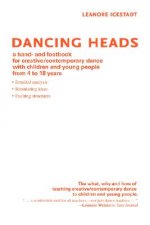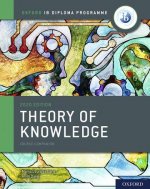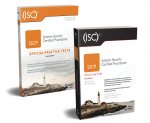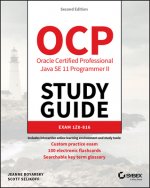
Kód: 08138641
Amnesty, Reconciliation and Reintegration
Autor Jeffrey H Powell
The Rwandan Genocide of 1994 was a cataclysmic international event. Because of the devastation suffered during the genocide, a focused effort at repairing the social fabric of the nation had to take place. The case shows how Rwand ... celý popis
- Jazyk:
 Angličtina
Angličtina - Väzba: Brožovaná
- Počet strán: 62
Nakladateľ: Biblioscholar, 2012
- Viac informácií o knihe

Mohlo by sa vám tiež páčiť
-

Spiking Neuron Models
111.45 € -

Collection of Tracts and Treatises Illustrative of the Natural History, Antiquities, and the Political and Social State of Ireland, at Various Periods
33.18 € -

Reflections
15.66 € -18 % -

Inner Impression/Outer Expression
29.70 € -

Hell is being Republican in Virginia
40.97 € -

Elfin Barrier
22.94 € -

Girl vs Ghost
12.69 €
Darujte túto knihu ešte dnes
- Objednajte knihu a vyberte Zaslať ako darček.
- Obratom obdržíte darovací poukaz na knihu, ktorý môžete ihneď odovzdať obdarovanému.
- Knihu zašleme na adresu obdarovaného, o nič sa nestaráte.
Viac informácií o knihe Amnesty, Reconciliation and Reintegration
Nákupom získate 150 bodov
 Anotácia knihy
Anotácia knihy
The Rwandan Genocide of 1994 was a cataclysmic international event. Because of the devastation suffered during the genocide, a focused effort at repairing the social fabric of the nation had to take place. The case shows how Rwanda overcame the negative impacts of the international community and implemented two aspects of the amnesty, reconciliation, and reintegration process (AR2) by developing interesting and innovative reconciliation and reintegration policies. Throughout the case there are four issues that prove integral to the AR2 process; the anthropology of Rwanda, its colonial history, the international communities actions, and the Rwandan Patriotic Fronts policies that returned the country to its cultural norms. Rwandan anthropology, cultural understanding, and colonial history play a vital role in forming the foundation for the genocide. These three factors set the conditions for a genocide that saw between 800000 and 1 million people killed in less than four months. The basis for the killing was a perceived and accentuated anthropological difference derived from tribal affiliations of Hutu and Tutsi. That difference gained its accentuation through colonial rule as it was used to divide and subjugate portions of the population, primarily Tutsi subjugation of Hutus. After Rwandan independence created a juxtaposed relationship, the Hutus gained and harshly exerted power over the Tutsis. Those relationships lead to years of internal strife. Multiple occasions of mass killings, refugee flow to neighboring countries, and the eventual evolution of a revolutionary army culminated in a civil war that began in 1990 between the Hutu-lead government and the Rwandan Patriotic Front that was based in Uganda. The culmination of the civil war was the genocide. A genocide that the international community was slow to react to, failed to stop, and hindered its recovery.
 Parametre knihy
Parametre knihy
Zaradenie knihy Knihy po anglicky Society & social sciences Education
60.84 €
- Celý názov: Amnesty, Reconciliation and Reintegration
- Podnázov: The International Community and the Rwandan Process
- Autor: Jeffrey H Powell
- Jazyk:
 Angličtina
Angličtina - Väzba: Brožovaná
- Počet strán: 62
- EAN: 9781249457893
- ISBN: 9781249457893
- ID: 08138641
- Nakladateľ: Biblioscholar
- Hmotnosť: 127 g
- Rozmery: 246 × 189 × 3 mm
- Dátum vydania: 21. September 2012
Obľúbené z iného súdka
-

OET Preparation
9.72 € -

Pearson Edexcel International GCSE (9-1) English Language B Student Book
51.21 € -

Oxford IB Diploma Programme: IB Economics Course Book
62.28 € -

Business Partner B1+ Workbook
16.89 € -4 % -

Cambridge IGCSE (R) & O Level Complete Chemistry: Student Book Fourth Edition
42.51 € -

Speed and Accuracy: Multiplication
8.60 € -

Cambridge IGCSE (R) & O Level Complete Physics: Student Book Fourth Edition
38.82 € -

Speed and Accuracy: Division
8.60 € -

Read Write Inc. Phonics: Red Ditty Book Bag Books (Mixed Pack of 10)
75.70 € -

Spontaneous Activity In Education
29.09 € -

Dancing Heads
13.21 € -19 % -

Freiarbeitsmaterial für die Grundschule - Deutsch - Klasse 1/2
23.25 € -4 % -

Business Partner B1 Workbook
17.51 € -9 % -

Business Partner B2 Workbook
16.89 € -4 % -

Blue Book of Grammar and Punctuation: An Easy- to-Use Guide with Clear Rules, Real-World Examples , and Reproducible Quizzes, Twelfth Edition
15.15 € -29 % -

Grade 9-1 GCSE Maths AQA Revision Question Cards - Higher
10.23 € -4 % -

Oxford IB Diploma Programme: IB Theory of Knowledge Course Book
57.98 € -

Positive Discipline Tools for Teachers
15.66 € -19 % -

Embodied Teen
21.81 € -17 % -

Pearson Edexcel AS and A level Mathematics Statistics & Mechanics Year 1/AS Textbook + e-book
18.12 € -

(ISC) SSCP SG & SSCP Practice Test Kit, 3e
66.07 € -28 % -

Motivation and Reinforcement
46.50 € -

Imagine If...
10.95 € -24 % -

KS3 Maths 10-Minute Weekly Workouts - Year 7
8.08 € -9 % -

Vertical Academy
36.77 € -

OET Reading Subtest Preparation
12.80 € -7 % -

Oxford International Primary Maths Second Edition: Practice Book 1
16.28 € -

Vol 2 Blackletter Lettering Adventures
25.40 € -3 % -

AS & A Level Maths For Dummies
17.30 € -28 % -

Forensic Linguistics Articles
15.46 € -

CompTIA Security+ Review Guide - Exam SY0-601
24.78 € -25 % -

Practical Guide on Veterinary First Aid using Homeopathy
15.05 € -2 % -

Abolition of Man
18.74 € -2 % -

Human Landscapes from My Country
31.03 € -16 % -

Corrected Squares of The Book of Abramelin
537.85 € -

Hanbo Jutsu: Use of Hanbo, Cane and Walking Stick for Self Defense
11.36 € -

Reading Mind - A Cognitive Approach to Understanding How the Mind Reads
21.50 € -29 % -

Exam Prep for Microeconomics by Pindyck & Rubinfeld, 6th Ed.
40.87 € -

KS3 Maths 10-Minute Weekly Workouts - Year 8
8.08 € -9 % -

North Korea's Military Threat
25.91 € -

English Language & Literature WORKBOOK: York Notes for GCSE (9-1)
9.11 € -9 % -

Release Your Inner Drive
15.36 € -18 % -

Effect of Registration Errors on Tracking in a Networked Radar System
60.84 € -

Princeton Review SAT Premium Prep, 2021
45.68 € -

CEH v11 Certified Ethical Hacker Study Guide + Practice Tests Set
76.11 € -5 % -

10 Practice Tests for the SAT, 2021 Edition
33.80 € -

OCP Oracle Certified Professional Java SE 11 Programmer II Study Guide - Exam 1Z0-816 and Exam 1Z0-817
49.88 € -6 % -

Powerful Teaching: Unleash the Science of Learning
29.09 € -20 % -

Physics for You
52.24 €
Osobný odber Bratislava a 2642 dalších
Copyright ©2008-24 najlacnejsie-knihy.sk Všetky práva vyhradenéSúkromieCookies



 21 miliónov titulov
21 miliónov titulov Vrátenie do mesiaca
Vrátenie do mesiaca 02/210 210 99 (8-15.30h)
02/210 210 99 (8-15.30h)